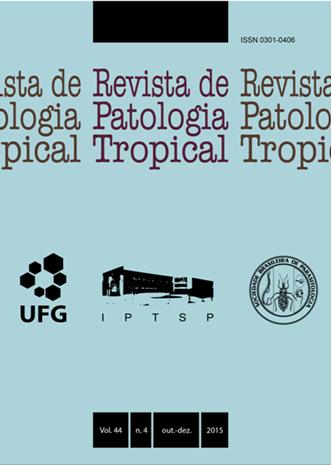PLANTAS DA AMAZÔNIA BRASILEIRA COM POTENCIAL LEISHMANICIDA in vitro
DOI:
https://doi.org/10.5216/rpt.v44i4.39236Palavras-chave:
Leishmaniose, quimioterapia, etnofarmacologia.Resumo
A preocupação em buscar novos fármacos para o tratamento da leishmaniose é cada vez maior em virtude da toxicidade dos existentes e do aumento da resistência do parasito, o que representa uma ameaça ao controle da doença. O presente estudo apresenta uma revisão bibliográfica sobre as plantas da Amazônia brasileira com potencial atividade leishmanicida in vitro. Constatouse uma grande diversidade de espécies vegetais da Amazônia brasileira com potencial para a investigação de novos fitoterápicos e metabólitos secundários com ação leishmanicida, além do tratamento de outras parasitoses negligenciadas. A presente revisão demonstrou que as espécies dos gêneros Casearia, Croton e Physalis são fortes candidatas para busca de novos fármacos, visto que apresentaram um IC50 menor que 1?g/mL em testes in vitro contra as formas promastigotas ou amastigotas de Leishmania spp. Ressalta-se a importância de estudos futuros sobre espécies que apresentem metabólitos terpenoides ou esteroides em virtude do potencial leishmanicida que têm demonstrado.Downloads
Downloads
Publicado
Como Citar
Edição
Seção
Licença
The manuscript submission must be accompanied by a letter signed by all authors stating their full name and email address, confirming that the manuscript or part of it has not been published or is under consideration for publication elsewhere, and agreeing to transfer copyright in all media and formats for Journal of Tropical Pathology.

